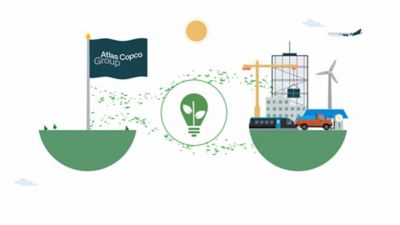Reliably sweet
June 2, 2015
Switzerland is known for its chocolate, watches and snow-capped mountains. The country’s sole sugar producer has plans to sweeten that list.
More than 10 000 tonnes of sugar beets are delivered daily to ZAF’s facilities during the sugar producing season.
Facing the pressure at the time, we improved our operations,” Frankenfeld says.
The Aarberg plant has cut its energy consumption by 30% in the past decade, and it now uses less energy than any other sugar factory in the world. It achieved this status in large part by using waste heat to drive the production of crystallized sugar. “We have developed ways to constantly reuse thermal energy,” Frankenfeld says. “To us, waste heat is everything below 40 degrees Celsius.” The process requires less steam than comparable procedures, and that boosts efficiency. But because steam also acts as a provider of energy in the process, the Aarberg facility uses too little of it to supply enough power to produce syrup (which eventually becomes sugar) at the desired concentration. That’s where Atlas Copco’s vapor compressor comes in. The machine increases the pressure and the temperature of the steam in the system, which can then serve as the heating medium for the liquid being formed by the existing vapor. That liquid, once cooled, turns into crystallized sugar. “The low need for fuel consumption is directly related to the function of the mechanical vapor compressor,” Frankenfeld says. After the season is over, the rest of the year is dedicated to maintenance. That includes the Atlas Copco compressor, which undergoes regularly scheduled preventive maintenance checks by Atlas Copco engineers.
Maintenance of the machine is very important to ensure overall efficiency and reliability,” Frankenfeld says.
He calls the vapor compressor a “triple-A machine.” It has been running since 1985, and its roar will resound at the Aarberg plant again as soon as September rolls around. “Maintenance of the machine is very important to ensure overall efficiency and reliability.” Thomas Frankenfeld, Plant Manager
Technical Profile
Zuckerfabrik Aarberg uses a single stage Atlas Copco vapor compressor to increase steam pressure and temperature in its system. The heated steam can then heat the liquid that later becomes crystallized sugar. Written by Atlas CopcoSwiss Sugar manufacturer ZAF




